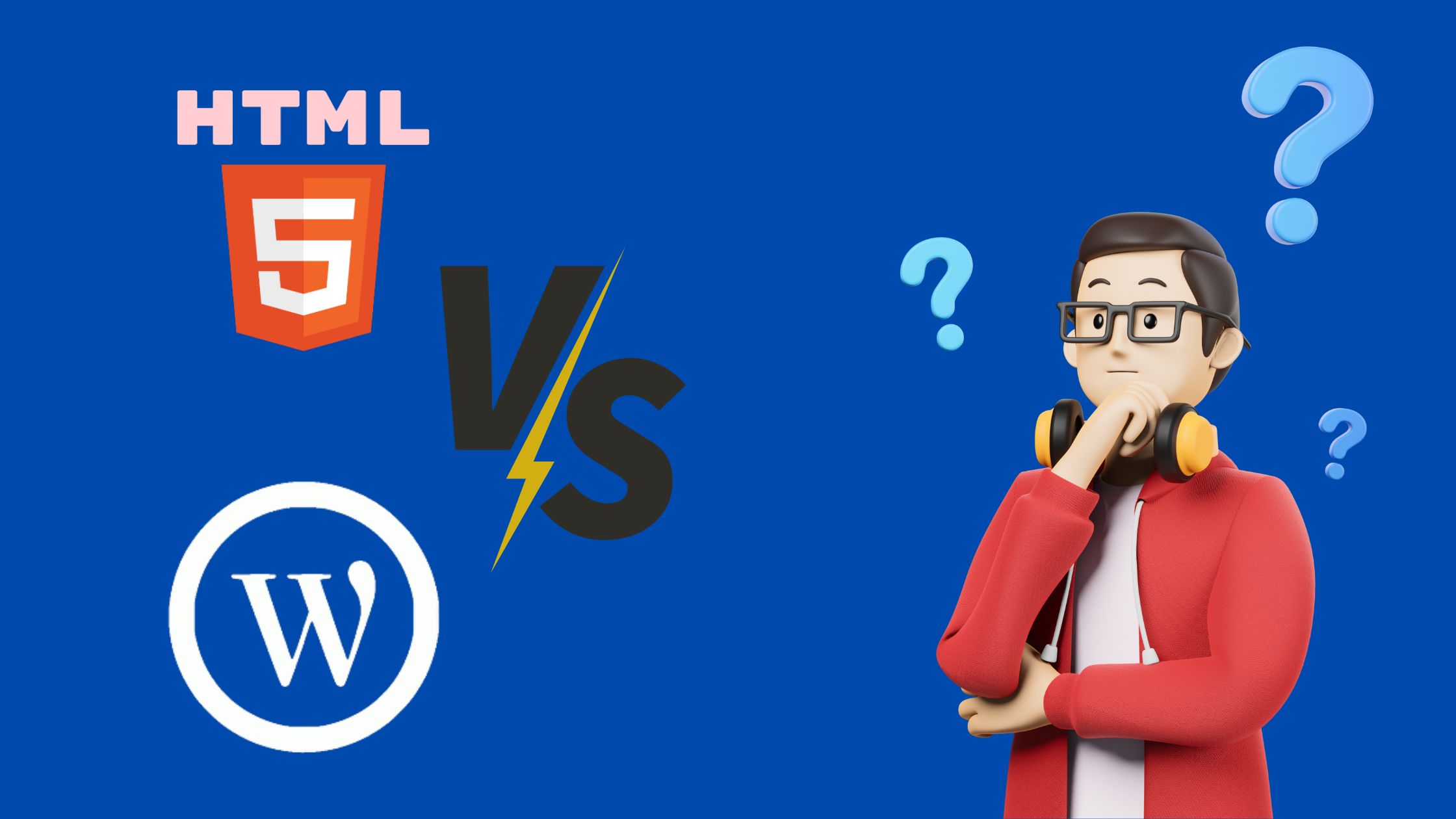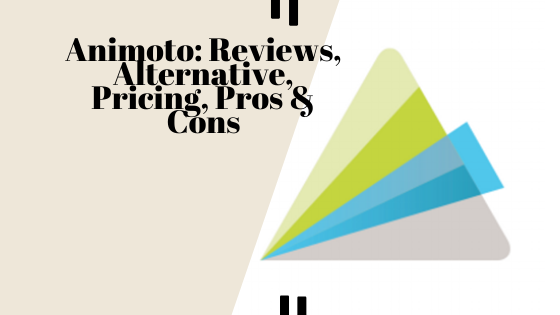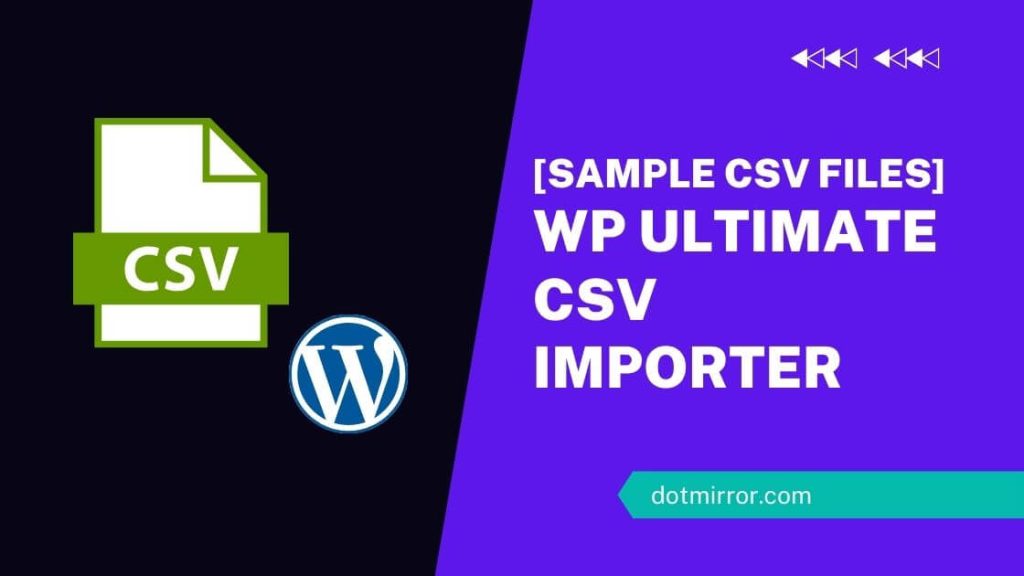Wondering which platform to choose while launching your new websites? Selecting a suitable website creator is a challenging task because you have multiple options around you.
WordPress and HTML are the two popular names for business websites among the best choices. But there are significant differences between them which prove them to be better than one another.
We have a complete comparison review for WordPress vs HTML to help you. Here, we included each critical feature, benefit, and the reasons for using one so that you can pick the most suitable software without hassle. Let’s get started with the overview below.
WordPress vs HTML, Which is Better?
The choice between WordPress and HTML depends on your project needs.
-
WordPress: Ideal for dynamic content, easy updates, and plugin support. Great for non-technical users.
-
HTML: Offers full control, better performance, and is suitable for static sites. Requires more technical expertise.
What is WordPress?
WordPress is a popular content management system(CMS) and website builder. It’s free and open-source software that allows users to build websites the way they imagine.
WordPress is efficiently good at creating, editing content, organizing, and publishing it within minutes with excellent content management. So you get a fantastic user-friendly interface and control your overall site easily.
Why Use WordPress?
Among the several reasons, let’s discuss the few crucial reasons to use WordPress.
-
Requires Less time
WordPress takes a couple of minutes to create websites. Which relatively saves much of your time that you can invest in increasing traffic and customers on your site.
-
Responsive Theme Design
It has a responsive theme design that makes it a mobile platform for mobile users.
-
Additional Plugins
WordPress allows adding many additional plugins such as schema plugins to make this advanced platform user-friendly and more powerful.
-
Easy to Update
You won’t need to meet any developer to login into your WordPress site. Its out-of-the-box features for users allow you to create and update sites easily.
-
Code-free content management
WordPress eliminates the coding mess from the day-to-day management of your site. On top-notch, you can use a graphic interface to take almost every action relating to the contents.
What is HTML?
HTML is a markup language. Among the programming languages, this one is the most prominent used for displaying web pages. HTML is used together with several markups and scripting languages such as javascript and CSS to create websites.
Why Use HTML?
Who loves to mess with deep coding, HTML is great for them. Let us show you the fundamental reasons for using HTML.
-
Required Little Maintenance
HTML websites don’t need regular maintenance like updates and backups once it is live. If nothing is changed, in that case, you need to just backup your site once.
-
Strong Security
HTML security systems are created by professionals who maximize your site security and make it tough to break.
Does WordPress Use HTML?
Shortly, Yes. Though WordPress is not written in HTML. Its core software and even the WordPress template applications are primarily written in the PHP programming language, which controls a WordPress site’s connection and interaction policy.
Being a server-side language, PHP runs the host server of that website entirely. So if a visitor types in one of your website pages URL, your server’s PHP code will receive this request. Afterward, PHP code pulls the relevant content from the site database.
Next, the PHP code converts that requested content into an HTML static file and accompanying CSS files and sends it to the visitor who makes the request.
Although WordPress’s looks and functions are similar to a static HTML site to end-users, its content storing and delivering process is utterly opposite from static content.
The WordPress hosting server uses PHP codes to assemble WordPress content and pages into HTML files, but the pages of a static website are stored in the different HTML files. So there is no necessity for assembly.
Static HTML, such as JavaScript and CSS, is a client-side language. Unlike PHP, HTML runs on the visitor’s device accessing a website instead of running on the hosting server.
Differences of WordPress vs. HTML
WordPress and HTML are two top competitors of website building platforms. Let’s explore their critical differences from this head-to-head comparison.
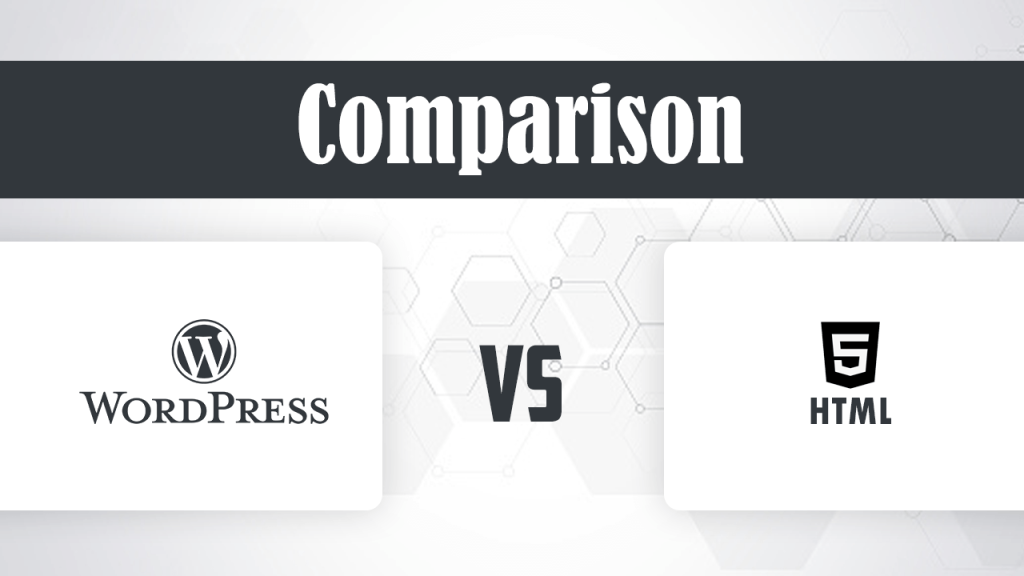
-
Security
You are primarily concerned about security issues for your business websites. So pick a tool that can ensure you maximum data security.
-
WordPress
WordPress follows a Code-less Content Management system to protect your website very well. Otherwise, it has a large number of security plugins to keep your website safe. But when you use a variety of themes and plugins, they increase the risk of entry of hackers.
-
HTML
Static HTML websites and code doesn’t have any background processing. So the hackers can’t quickly attack your static websites. Moreover, professional developers work for converting HTML websites with HTML and CSS coding. That makes it tougher for ordinary hackers to break the security without great coding experience.
Winner- HTML
Development Cost
Your budget tells how much cost you can afford. So when considering the differences between WordPress vs. Static HTML, consider their development cost category.
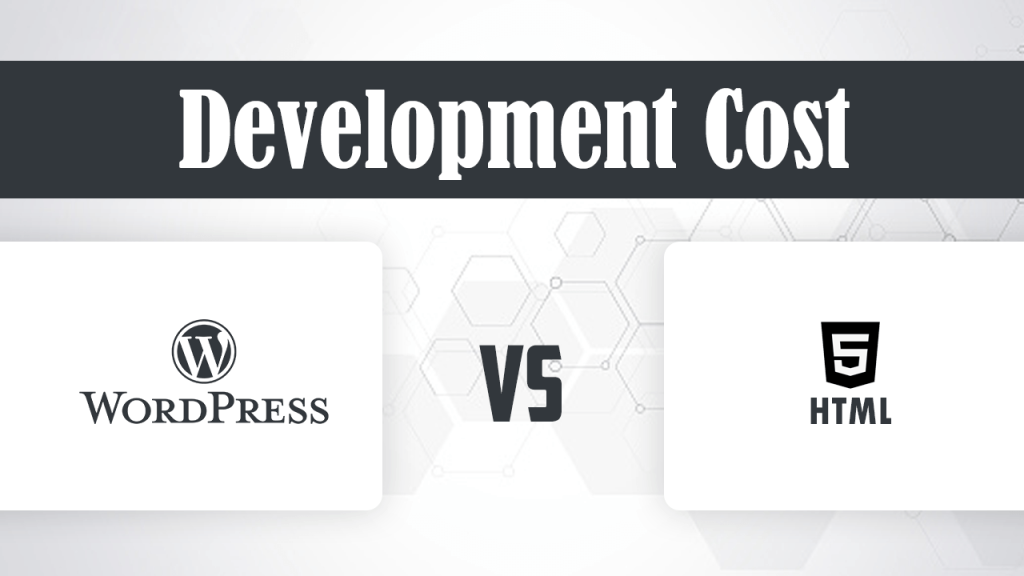
-
WordPress
Among small to medium businesses, WordPress is a popular choice for building websites. The main reason is its affordable prices. As we know, it’s a free version, so you’ll get its extra functionalities and features almost free.
If you run your hosting, you have to pay for this. But this can also be free when you directly host the website from WordPress.com in limited ownership condition. However, if you’re on a tight budget, WordPress is a better choice to build your websites.
-
HTML
Custom-built HTML websites are mainly dependent on developers if you don’t have coding and technical skills. That is the main reason behind increasing your cost using HTML. It also adds yearly hosting fees and maintenance costs.
Otherwise, you’ll run through costly maintenance for the high maintenance fees of your website. The average price of a hosting plan can be between $5-$25 per month. But big companies with high marketing budgets can certainly choose HTML for their website.
Winner- WordPress
Ease of Use
Everybody loves an intuitive user interface. An easy-to-use and manageable platform can simplify your life and give you plenty of time for spending on your websites.
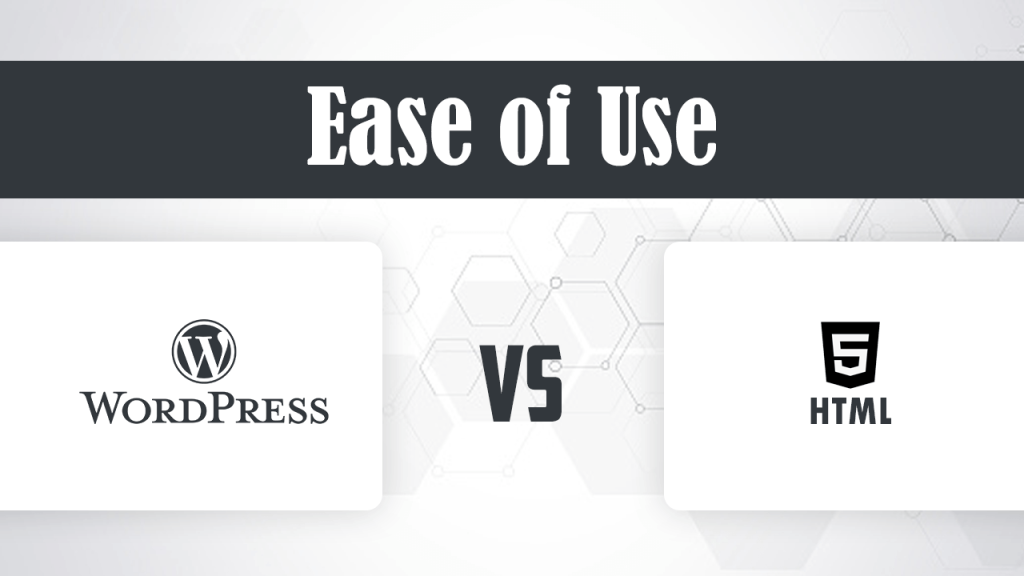
-
WordPress
WordPress is a clean and beginner-friendly user interface with cool features. This is the biggest benefit for absolute beginners. Besides, the drag and drop features make it enjoyable to use.
Though you do not have any programming efficiency, you can easily manage your WordPress business sites. Its graphic interface makes WordPress a popular platform for millions of users.
-
HTML
Therefore, HTML is a good choice for custom-made HTML websites. Working with HTML is a true excitement for developers. But if you don’t have adequate coding abilities, you will find it difficult to use in every step.
It has no graphic interface, so everything you’ll need to write on code. Creating and editing content or even adding functions in HTML is all you have to do in code.
Winner- WordPress
Blogging
Websites featuring blogs likely have high chances of being in the top rank. So you should pick the ultimate solution for creating and publishing content. Let’s check out who wins this blogging category.
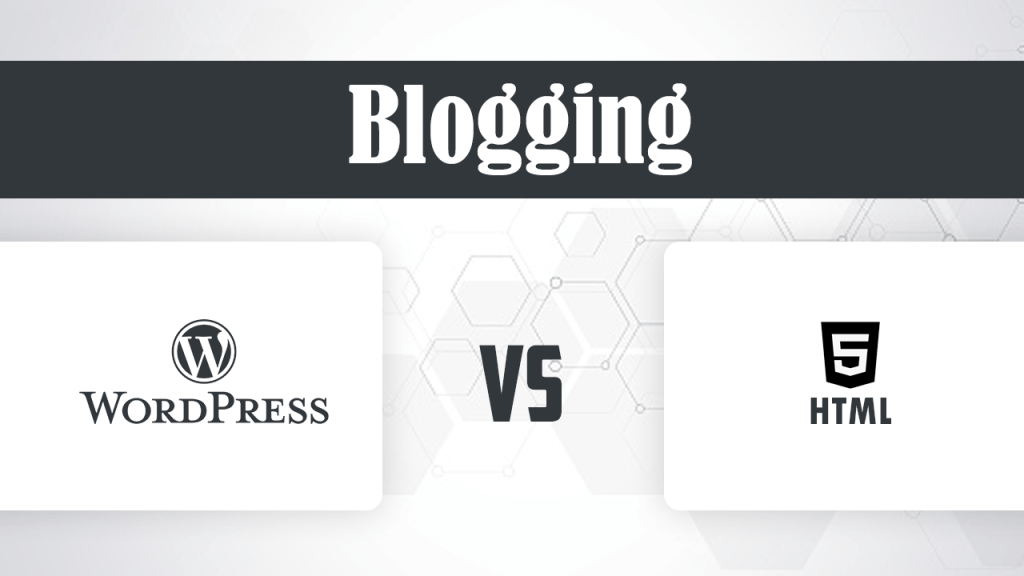
-
WordPress
Though WordPress works for multi-purpose CMS, it is renowned as a blogging platform. It has lots of advanced built-in functionalities to create content with ease.
WordPress manages users, controls content visibility, and creates enormous multi-media blog posts and pages using the drag and drop block editor.
You can even add a blog section so that your customers or readers get regular updates. If you build an entire blog website and want to blog within minutes with a database, SEO and security WordPress is undoubtedly the best solution.
-
HTML
With HTML, the bloggers feel inconvenienced as it is slightly hard to post new content. But if you’re well known with HTML, you can create more complex blog posts comparing WordPress.
Thus HTML blogging requires significant time for coding on your own or hiring anyone else. But you can take complete control over the design and structure of your content.
Winner- WordPress
HTML Template vs WordPress Theme
If you observe the current scenario, you’ll see the users are mostly like responsive websites. Thus themes and templates play an excellent role in an ideal website structure.
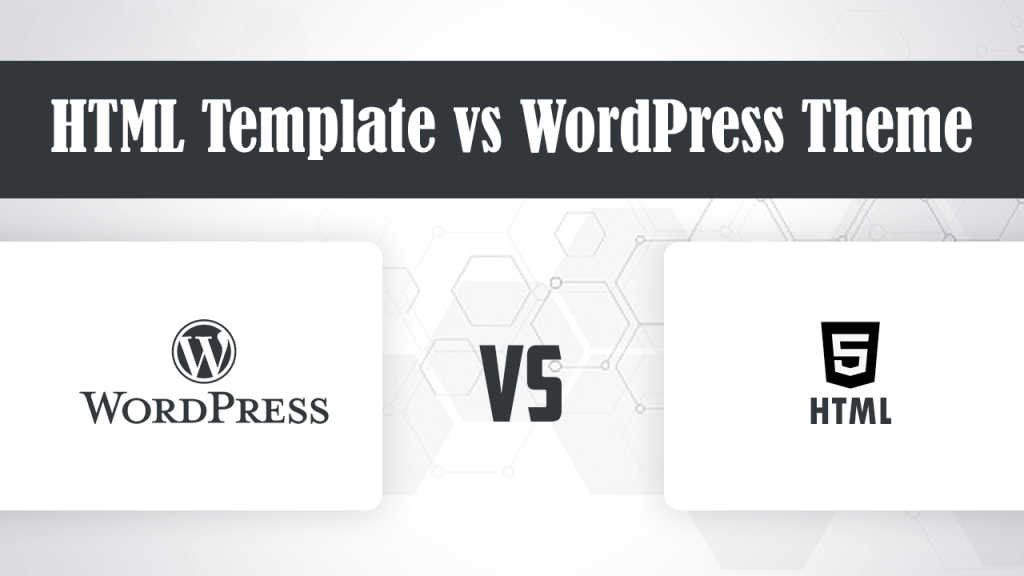
-
WordPress
WordPress files are basically called themes, and it is managed through the admin panel. WordPress gives you the freedom to choose thousands of themes and templates. The most benefit of Worpress is it enables free and paid ready-made templates for you. Professional developers (you can make an internal link on the react js developer salary) create all the themes, so the themes are highly attractive to use in your website.
Those responsive themes help to rank your site on Google and other search engines. On top it saves cost by avoiding developers hiring.
-
HTML
Turning to HTML, templates are built based on HTML technology and managed through the HTML editor. If you can afford developers and want to start everything from scratch, then HTML makes sense.
However, there are several ready-made HTML templates available so that beginners can efficiently work with HTML. But you can’t install HTML templates on WordPress Websites.
Winner- WordPress
HTML vs WordPress SEO
When you want to drive organic traffic to your sites and boost visibility, your website must be SEO-friendly. Let’s see which software is better in SEO settings.
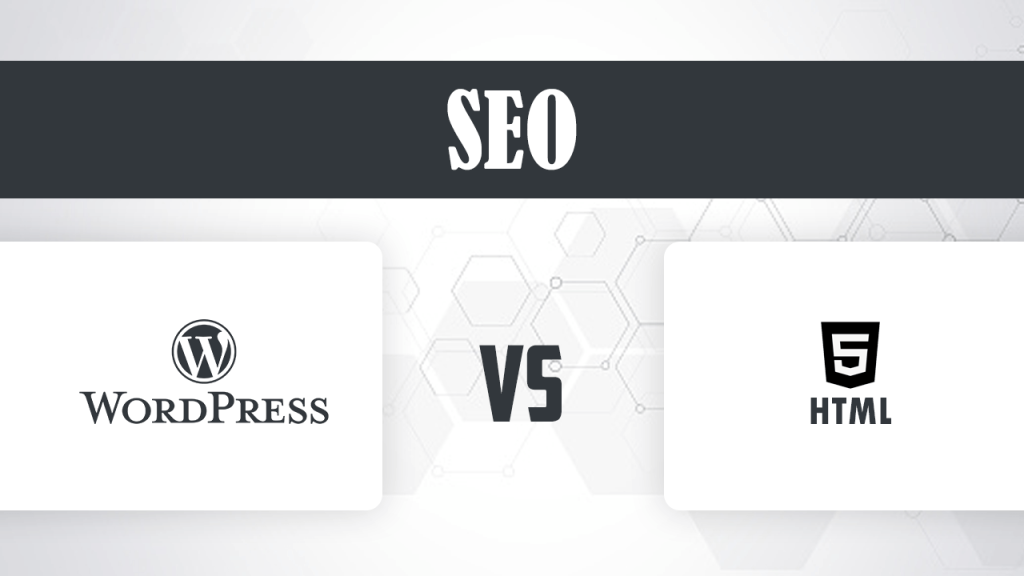
-
WordPress
WordPress is a popular choice for search engine optimization. It’s built-in features on an SEO basis so you can make dynamic content for search engines. Further, you can optimize it using an SEO plugin such as Yoast SEO.
You have complete control over on-page SEO in your dashboard like image alt-text, headings, custom URLs, meta description. Even technical-SEO is pretty easy in WordPress. So you can feel relaxed avoiding coding.
-
HTML
As HTML lacks built-in functionalities, it requires building websites from scratch. So you should have proper coding skills or hire a developer. If you know how to do it, then you can make an HTML site completely SEO optimized just like WordPress.
All you need to do is spend time creating the proper tags on the source code or hire anyone for development. Though on-page SEO is much easier but optimizing technical SEO is quite harder with HTML.
Winner- WordPress
WordPress vs HTML speed
Consider page loading speed while choosing a page builder to reduce bounce rate and provide a good user experience. Let’s compare the WordPress vs. static HTML speed.
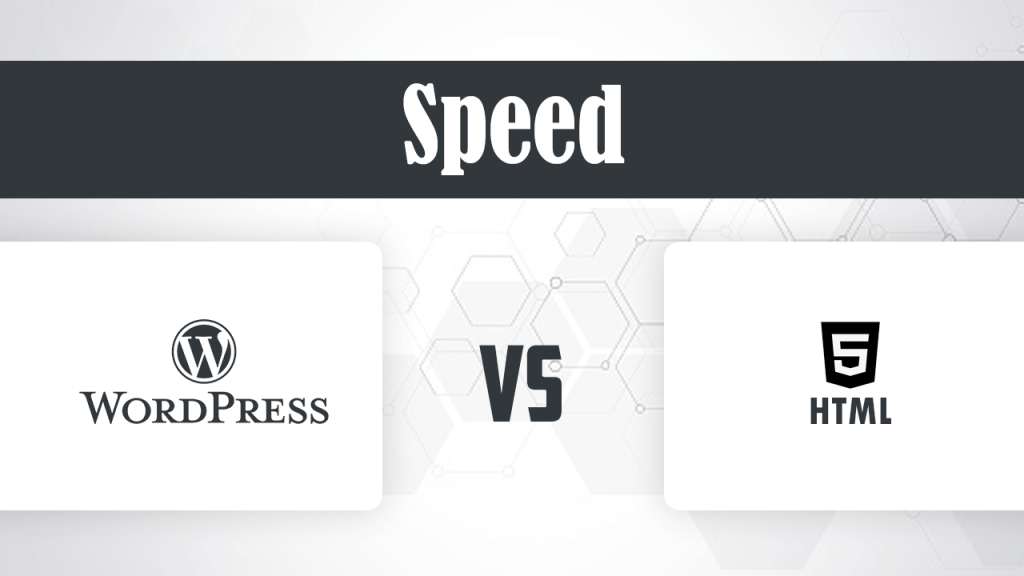
-
WordPress
WordPress requires executing PHP code and retrieving the correct information from the database, which delays your site’s load time compared to HTML.
But don’t worry, you can speed up WordPress’ website by selecting a faster hosting server, optimizing and compressing website images, purchasing Content Delivery Network, and taking other steps.
-
HTML
HTML is comparatively faster than WordPress once you can ensure code optimization. Fewer functionalities make it lightweight and enable quick loading. As you know, HTML doesn’t need PHP execution or database retrieving to load pages.
Otherwise, if you want to increase speed, you need to follow several steps such as cache content, eliminate white space, or compressing and minifying images. Not to mention that these steps can increase WordPress speed as well.
Winner- HTML
Pros and Cons of Using WordPress
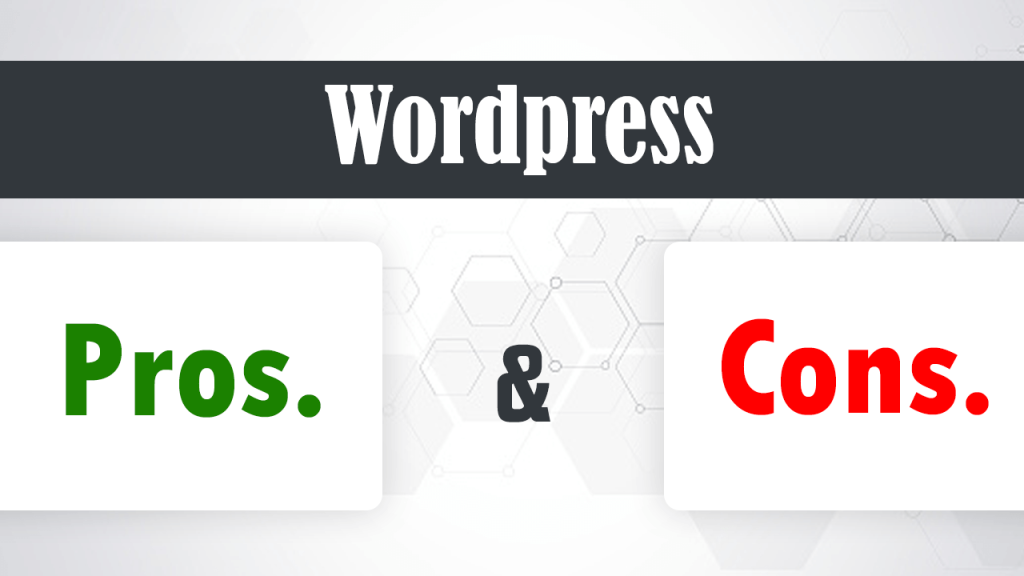
Pros
- Rapid Development
- Dynamic Websites
- Clean, clear-cut design
- Supports multilingual content
- Easy to update without developers
- Highly customizable in upgrading sites
- Easy to set up an eCommerce site and online shop
- A large community for developers helps to solve any issues
- Easy to add new functionalities and plenty of premium plugins
Cons
- Poor learning curve
Pros and Cons of Using HTML
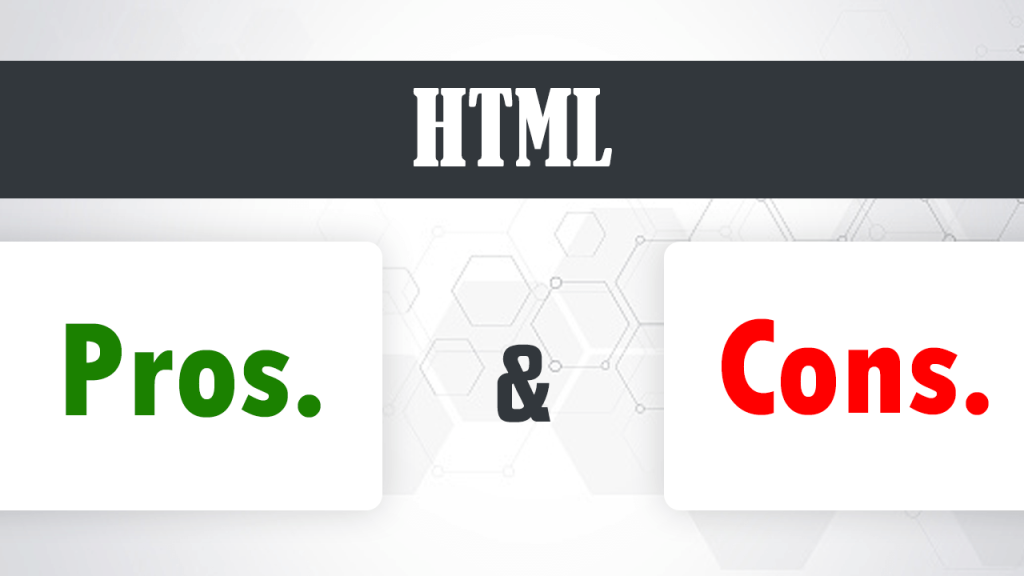
Pros
- No need for a database
- Less frequent updates and backups needed
- More control over all of the website
- It runs on cheaper servers and requires fewer resources
- Easily deploy schema markup
Cons
- No additional features
- non-standard functionality
WordPress vs. HTML which is better?
By observing our above discussion, you might already understand which will be a better choice for you. If you ask my opinion, we’ll say both approaches are best in their aspects.
However, the top advantage of WordPress is you don’t pay for the developers. You know WordPress websites are fully functional. So anyone can build a WordPress website without any design skill.
Indeed, WordPress is better for lightweights personal or corporate websites. If you intend to grow your business online and require several updates and changes, try this platform. Otherwise, it is a good match for complex websites for easy editing.
On the contrary, Static HTML is a perfect option for small business websites that don’t require additional content, regular updates, or changes. You can create several pages as much as you want.
It is faster and efficient with exciting animations and custom code. If you are just a newbie and want to start practicing building a straightforward website while learning a new language – HTML will be your great choice.
Now it’s up to you whether you need to build a site with HTML over WordPress or go down the static website generator route?
Conclusion
Lastly, our suggestion is to find out your requirements first. After that, compare both the WordPress vs. HTML platforms to see which can meet your needs. Hopefully, this article will work as your complete guide for choosing the most suitable tool for your website, and we wish you good luck with your dream websites!

